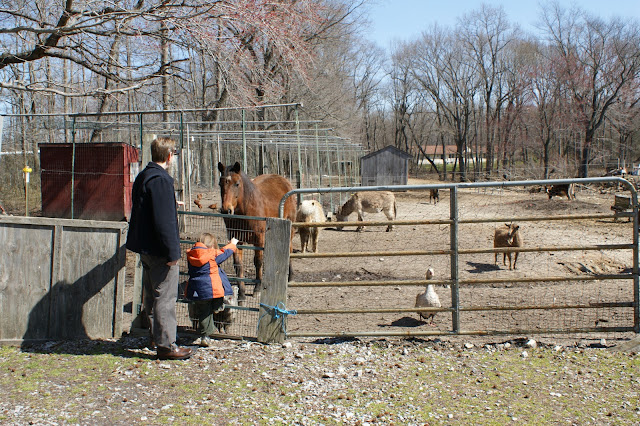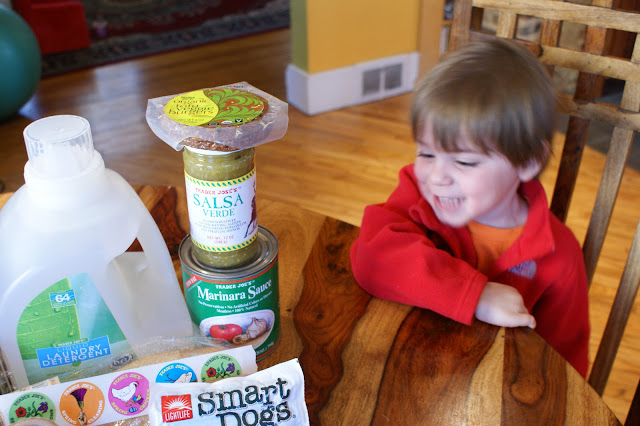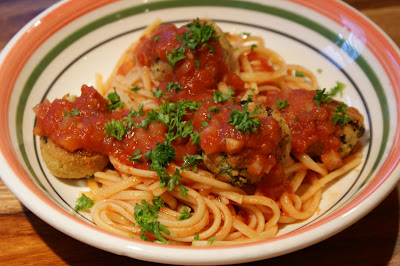Overcoming Barriers to Veganism, Strategies for Success
Dear
Meatout visitors and Vegan Fazool readers,
Welcome. Thank you for interest in veganism.
I thought it would be useful to explore two of the challenges folks face as new vegans or as struggling vegans: giving up animal products and responding to questions from others about your veganism (because trust me, it will be “yours” once you “go” vegan). I will provide resources and strategies for success in the face of said challenges. I will be abbreviating animal products as “APs” for brevity’s sake.
Challenge #1: “It is surprisingly easy to give up animal products.”
We have all heard the edict promoted by vegan activists that it is “easy” to give up animals products.” Well, yes and no. There are many variables that influence how difficult this change will be for you: issues with taste preference, fear of cravings, lack of education and resources on “what to eat” as a vegan, lack of basic cooking knowledge, dependence on take-out or restaurant food, dependence on APs in regular cooking, lack of specific cooking knowledge for vegan foods/recipes, lack of knowledge in how to substitute plant-based for animal-based foods, access to a grocery or market that carries a nice selection of vegan options (not as much a problem today as it was 10 or 20 years ago, though). So, it can be a minor problem or a major one, depends on how many of the variables affect you. Eating a vegan diet is an important step in dismantlement, so we must address these barriers.
Solution #1, Craving Management: If you are concerned about cravings, the best way to go vegan is to just totally cut out all animal products for a three to four week period. Dr. Neil Barnard is the biggest proponent of this strategy. Once you are totally free of animal products for that period of time, your body adjusts to allow your tastes to evolve to prefer plant-based foods. After the 3-4 week period without any APs, cravings will significantly diminish to a very manageable level or disappear completely. I personally found this to be true. If you expect it to be tough at first, especially regarding your favorite items, then you can properly prepare yourself and achieve success. The strongest cravings will be in the first days and will get easier and easier as time passes. Just have a plan to deal with them. If you eat the products you are craving, you will start over again at square one. There are compounds in animal products (like casein in cheese, and the saturated fats in beef) that function to make our brains really, really like them. Dr. Barnard touts the addictive properties of these substances. But, once your physiology adapts to the lack of APs, something magical happens and you just don’t want them anymore or you want them a lot less. Try it and you will see. Check out Dr. Barnard’s book, “Breaking the Food Seduction,” for excellent treatment of this topic.
Solution #2, Understand Taste Development & Learn to Cook
I agree with Erik Marcus, long-time vegan advocate, when he says to try lots of vegan foods, recipes and products until you find what you like. This is, of course, true of your current diet now. We all try foods and sometimes we like them and sometimes we don’t, and that can change over time as well. When transitioning to veganism, don’t rely on others’ reports of what is good, try it for yourself and if you like it, great, if you don’t, don’t worry about it. See
Dawn’s Unsolicited Advice for my list of cookbooks, blogs and, well, unsolicited advice for what works for me. There is no nutrition information in that post, so for your nutrition questions start with
www.theveganrd.com. Also, make (or learn to make) your favorite dishes and leave out or sub for the APs. That can be surprisingly easy once you get the hang of it, but it depends on your experience in the kitchen. Learn to cook, it is worth it.
And you don’t have to give up treats or desserts. Vegan baked goods are amazing and it is fun and fascinating to learn all of the different substitutions for eggs J. Check out how many great chocolates are vegan (soy lechitin is used instead of milk products) and look into the frozen section of your grocery or natural market for delicious vegan ice creams and treats. You will be happy you did.
For you coffee addicts (like me!), there are dozens of plant-based “milks” on the market to add to said coffee: soy, almond, coconut, hemp, hazelnut, rice, as well as soy-creamers for coffee. There are tons of excellent vegan products on the market that mimic meaty APs and some of them are great (Yves Pepperoni is a favorite of mine on vegan pizza). You may like some and not like others, this is fine. There are excellent vegan replacement products for cheeses, sour creams, cream cheese, mayonnaise and yogurt. However, a note of caution, until your tastes totally change, you may find these products taste “funny;” that is because they taste like plants and not like animals. I avoided them for a while when I first changed my diet. Once I was vegan for a while, I went back and tried some of the products I didn’t like at first. Many vegans love Daiya cheese, but I hated it for my first year vegan. Now I really, really like it.
Solution #3, Strive for Ninety-Five:
You can read more about this in my
About Dawn page, but I have about a dozen days or so a year where I allow some vegetarian-friendly animal products back into my diet, mostly for holiday/vacation social situations. And I still consider myself to be a successful vegan. Actually, if you think about it, even if you went crazy eating animal products for 18 full days of the year you would still be eating a vegan diet 95% of the time (vegan for the other 347 days). The 95% vegan or 347 days-a-year vegan is a strategy that works for me, and allows some flexibility when dealing with certain situations. I also have found it allows folks (especially friends and family) to hear a pro-vegan argument better, perhaps it displays a flexibility that folks assume vegans lack. Remember, I am a social worker, so am very sensitive to the individual and group dynamics at play in these situations. I obviously totally support a 100% vegan diet every day of the year.
Challenge #2: People are going to challenge your veganism. Often.
Sometimes it’s like the vent opens in people’s brains when they hear that you are vegan and they let loose some steam to varying degrees. I’m not sure exactly what all the frustration and defensiveness is about (I do have some theories) but get ready to be a productive member of a big debate team.
Solution #1, Know Your Stuff:
Unfortunately, vegans often find themselves on the defensive end of argument. We are often put in a position to dispel stereotypes and popular myths. It is a rare occasion not to undergo a barrage of questions when telling someone you are a vegan. It is best to be prepared to deliver a cogent argument regarding the reasons “why” you are vegan, where you get your protein, why human breast milk is vegan, why vegans don’t advocate more for animals who get run over by tractors in factory vegetable farming, etc. It is just easiest to be prepared for these discussions. Certainly you can refer folks to web or literature resources instead of giving the entire argument yourself. You can always tell the person you’ll get back to them if you don’t know something. It is best to be prepared or just to say you will look into something rather than to get angry, frustrated and defensive about your choices, and certainly better than giving misinformation. Please be mindful of giving misinformation. Stay calm and present yourself professionally; Even if you think defending veganism is not your job, it is assumed by others that it is. Many times it is a lack of information on the listener’s end that is causing the problem (that is the dispelling of myths issue). But don’t expect people to agree with you, either, once you provide them with said information. Doesn’t usually happen.
Why some omnivores feel they can argue effectively against dismantlement of animal agriculture when they haven’t read the literature is a point of contention for me (since usually I have read the literature/articles/book they are talking about, but they haven’t read mine and are just refuting my points with stereotypes and myths). To be honest, though, why the heck should anyone know all the problems with animal products unless they have concerns about it and have started doing some digging? They shouldn't. The USDA and “big ag” make sure of that. Those bodies certainly don’t provide us with transparency in USDA nutritional guidelines or in processing or production information about animal products, so most people who haven’t dug, don’t know or have been mislead. Remember that when doing your advocacy. Giving factory farming information sounds like dramatization, but clearly isn’t, so please continue to do that without fear of being “dramatic.”
In general, make sure you check (and read!) your own sources (as well as sources likely to be used by the counterargument) thoroughly before presenting information as absolute truth, since many times, there are degrees of truth within each claim of fact. Be mindful.
Solution #2, Find Community Support:
Follow blogs, get on FB, find community, whether that is online or in-person at a veggie club or vegan coffee house. It helps much more than you could imagine with maintaining motivation and getting information and resources. It is also useful for keeping up to date with the most recent news and statistics in the dismantlement movement. And you can learn a lot about veggie foods and advocacy via FB posts, sharing, reading tweets, and tweeting.
Follow me on Twitter @VeganFazool, or friend me on FB.
I hope this provided you with a useful framework of solutions to two of our common problems.
Enjoy the rest of your weekend.
Sincerely,
Dawn
P.S. Here's a picture of my next recipe post:


















































